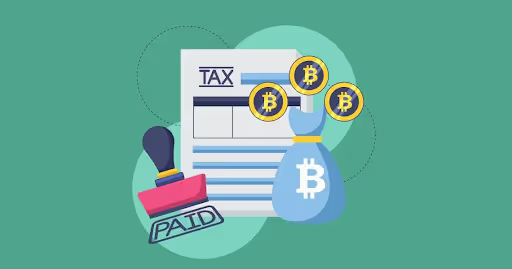.avif)
Calculate Your Crypto
Taxes in Minutes
Are you wondering if you can avoid crypto taxes in the United Kingdom?
While it is not a good idea to try to hide your cryptocurrency from HMRC, savvy investors use legal tax strategies to save money.
In this guide, we'll go over 10 key strategies and insights to help you minimize your cryptocurrency tax liabilities while remaining compliant with UK laws.

Tax Avoidance vs. Tax Evasion - Clarifying the Difference
Before diving into specific strategies, it's essential to distinguish between tax avoidance and tax evasion, as these terms are often confused.
- Tax avoidance: involves legally using the tax regime to one's advantage within the bounds of the law. This may include investing in tax-advantaged strategies or applying legitimate deductions and credits to reduce crypto tax liabilities.
- Tax evasion: is an illegal practice that involves deliberate misrepresentation or concealment of information to reduce tax liabilities. Engaging in tax evasion can lead to severe penalties, fines, and in some cases even prosecution. Throughout this guide, we will focus solely on legal ways to reduce tax liability in the UK.
How is Crypto Taxed in the UK?

Understanding the tax landscape is crucial to devising effective strategies. In the UK, cryptocurrencies are subject to Capital Gains Tax (CGT) and Income Tax, depending on the nature of the transactions.
- Capital Gains Tax (CGT): Applies to profits from selling or exchanging cryptocurrencies, taxing only the profit, not the total sale amount. The rate varies, typically 10% or 20%, based on individual income.
The Capital Gains Tax rate is determined by your individual income. For Example, if your income is less than £50,270, you will pay a 10% tax on your bitcoin gains, whereas if your income exceeds £50,270, you will pay a 20% tax.
- Income Tax: Levied on profits from activities like mining or staking, taxing the value of additional coins or assets at the time they are gained. The rate varies from 20% to 45%, depending on individual income.
Taxable Crypto Transactions
Numerous crypto-related transactions and events are taxable in the United Kingdom. Some common examples are:
- Selling Cryptocurrency: Triggers Capital Gains Tax (CGT) on the profit.
- Exchanging Cryptocurrency: May incur CGT on any gains.
- Spending Cryptocurrency: Considered a disposal and may trigger CGT.
- Gifting Cryptocurrency: May result in CGT if not to a spouse or civil partner.
- Mining and Staking: Typically subject to Income Tax.
- Receiving Cryptocurrency as Payment: Considered income and subject to Income Tax.
- Airdrops and Forks: Depending on circumstances, may be considered taxable income.
- Interest from Crypto Lending: Earnings may be considered income, subject to Income Tax.
- Cryptocurrency as Earnings: If paid in cryptocurrency for work, it's treated as income.
Hide Crypto from the HMRC! Good Idea?

Attempting to hide crypto assets from the HMRC is not advisable. The HMRC has been actively taking steps to crack down on tax evasion related to cryptocurrencies, collaborating with international agencies and utilizing advanced data analysis to detect discrepancies and hidden assets. Intentional hiding of assets to evade taxes can lead to severe penalties, fines, criminal charges, and imprisonment.
10 Legal Strategies to Avoid Crypto Taxes in the UK
1. Use Crypto Tax Software
Leveraging crypto tax software can automate the complex task of tracking transactions, gains, and losses across various cryptocurrencies. This ensures accurate calculation of tax liabilities, potentially reducing the overall tax bill. Kryptos UK's best Crypto Tax Calculator provide real-time insights and help in legal tax optimization.
2. Tax Loss Harvesting
This strategic approach involves selling crypto assets at a loss to offset gains made on other investments in the same tax year. Careful planning and timing are essential to ensure losses and gains are properly matched, offering a legal and effective way to manage tax burdens.
3. Carry Forward of Losses
If capital losses exceed gains in a tax year, the net loss can be carried forward to offset gains in future years. Detailed records of losses must be maintained, and while they can be carried forward indefinitely, they can't offset other types of income.
4. Utilize Allowances
Take advantage of the annual tax-free capital gains allowance. For the 2022/2023 tax year, this allowance is £12,570. Realizing gains up to this limit allows investors to legally avoid paying Capital Gains Tax on those gains.
5. Consider Timing of Sales
Strategically timing crypto asset sales to align with tax years can significantly impact capital gains tax liability. Planning sales around fiscal periods may result in falling into a lower tax bracket, reducing the overall tax rate.
6. Gift or Donate Cryptocurrency
Gifting cryptocurrency to a spouse or civil partner within the UK does not trigger Capital Gains Tax. Additionally, donating cryptocurrency to a recognized charity, without receiving anything in return, may be viewed as tax-deductible, allowing a deduction from taxable income.
7. Consider Your Income Bracket
Understanding your income level is crucial for strategic decisions about selling crypto assets. The UK's progressive tax system means you may incur capital gains at a lower tax rate by reducing your income and entering a lower tax bracket.
8. Keep Accurate Records
Proper documentation and accurate reporting of all crypto transactions are essential in the UK tax system. This ensures that you're not overpaying on taxes and that you're claiming all entitled deductions. Utilize tools like a free crypto portfolio tracker to automatically track transactions and assets.
9. Consult a Tax Professional
Engage with a tax consultant specializing in cryptocurrency. Personalized professional advice can reveal opportunities tailored to your specific situation.
10. Optimize & File with Kryptos
For investors looking to calculate their cryptocurrency taxes precisely, Kryptos offers a number of advantageous features. Here are some of the benefits of employing Kryptos:
- User-friendly interface: Kryptos provides an easy-to-use interface for tracking crypto transactions and creating correct tax reports. It does not require tax experience to navigate.
- Easily integrate with over 3000+ DeFi protocols covering exchanges, wallets, blockchains, and services such as Binance, Coinbase, and Kraken, Kryptos enables effortless account connection and automated importation of transactions, eliminating the need for manual entry.
- Leading crypto portfolio tracking and insights: Kryptos's portfolio tracking and insights tool allows you to take control of your crypto data. The portfolio dashboard provides an overview of your transactions as well as data on your entire crypto portfolio. Real-time updates on buy and sell data, net profit, and total profit help you make informed decisions and keep track of your investments.
- Accurate Crypto Tax Calculator: Kryptos uses an advanced algorithm to calculate the acquisition cost of each cryptocurrency transaction, ensuring accurate representation and documentation of capital gains and income for tax purposes.
- Expert resources include: To know more about UK crypto taxes check out our Ultimate UK Crypto Tax Guide
FAQs
1. How can I legally minimize my crypto tax liabilities in the UK?
To legally minimize crypto tax liabilities in the UK, consider strategies such as using crypto tax software for accurate calculations, engaging in tax loss harvesting, utilizing annual tax-free allowances, and strategic timing of sales. Always stay compliant with UK tax laws.
2. Is it possible to hide crypto assets from the HMRC to avoid taxes?
Attempting to hide crypto assets from the HMRC is not advisable. The HMRC actively pursues tax evasion related to cryptocurrencies and employs advanced techniques to detect hidden assets. Intentional evasion can lead to severe penalties, fines, and legal consequences.
3. Can gifting cryptocurrency help in avoiding Capital Gains Tax in the UK?
Gifting cryptocurrency to a spouse or civil partner within the UK is an exempt transaction and does not trigger Capital Gains Tax. This exemption allows for strategic planning within a family’s financial framework.
4. What is tax loss harvesting, and how can it help in reducing crypto taxes?
Tax loss harvesting involves selling crypto assets at a loss to offset gains made on other investments. This strategic approach can help reduce overall capital gains tax liabilities. Careful planning and timing are essential for effective implementation.
5. Why is keeping accurate records of crypto transactions important for tax management?
Keeping accurate records of all crypto transactions is crucial for proper tax management in the UK. Detailed documentation ensures that you're not overpaying on taxes, and it helps in claiming all entitled deductions, contributing to efficient and compliant tax reporting.
All content on Kryptos serves general informational purposes only. It's not intended to replace any professional advice from licensed accountants, attorneys, or certified financial and tax professionals. The information is completed to the best of our knowledge and we at Kryptos do not claim either correctness or accuracy of the same. Before taking any tax position / stance, you should always consider seeking independent legal, financial, taxation or other advice from the professionals. Kryptos is not liable for any loss caused from the use of, or by placing reliance on, the information on this website. Kryptos disclaims any responsibility for the accuracy or adequacy of any positions taken by you in your tax returns. Thank you for being part of our community, and we're excited to continue guiding you on your crypto journey!
| Step | Form | Purpose | Action |
|---|---|---|---|
| 1 | 1099-DA | Reports digital asset sales or exchanges | Use to fill out Form 8949. |
| 2 | Form 1099-MISC | Reports miscellaneous crypto income | Use to fill out Schedule 1 or C. |
| 3 | Form 8949 | Details individual transactions | List each transaction here. |
| 4 | Schedule D | Summarizes capital gains/losses | Transfer totals from Form 8949. |
| 5 | Schedule 1 | Reports miscellaneous income | Include miscellaneous income (if not self-employment). |
| 6 | Schedule C | Reports self-employment income | Include self-employment income and expenses. |
| 7 | Form W-2 | Reports wages (if paid in Bitcoin) | Include wages in total income. |
| 8 | Form 1040 | Primary tax return | Summarize all income, deductions, and tax owed. |
| Date | Event/Requirement |
|---|---|
| January 1, 2025 | Brokers begin tracking and reporting digital asset transactions. |
| February 2026 | Brokers issue Form 1099-DA for the 2025 tax year to taxpayers. |
| April 15, 2026 | Deadline for taxpayers to file their 2025 tax returns with IRS data. |
| Timeline Event | Description |
|---|---|
| Before January 1, 2025 | Taxpayers must identify wallets and accounts containing digital assets and document unused basis. |
| January 1, 2025 | Snapshot date for confirming remaining digital assets in wallets and accounts. |
| March 2025 | Brokers begin issuing Form 1099-DA, reflecting a wallet-specific basis. |
| Before Filing 2025 Tax Returns | Taxpayers must finalize their Safe Harbor Allocation to ensure compliance and avoid penalties. |
| Feature | Use Case Scenario | Technical Details |
|---|---|---|
| Automated Monitoring of Transactions | Alice uses staking on Ethereum 2.0 and yield farming on Uniswap. Kryptos automates tracking of her staking rewards and LP tokens across platforms. | Integrates with Ethereum and Uniswap APIs for real-time tracking and monitoring of transactions. |
| Comprehensive Data Collection | Bob switches between liquidity pools and staking protocols. Kryptos aggregates all transactions, including historical data. | Pulls and consolidates data from multiple sources and supports historical data imports. |
| Advanced Tax Categorization | Carol earns from staking Polkadot and yield farming on Aave. Kryptos categorizes her rewards as ordinary income and investment income. | Uses jurisdiction-specific rules to categorize rewards and guarantee compliance with local tax regulations. |
| Dynamic FMV Calculation | Dave redeems LP tokens for Ethereum and stablecoins. Kryptos calculates the fair market value (FMV) at redemption and during sales. | Updates FMV based on market data and accurately calculates capital gains for transactions. |
| Handling Complex DeFi Transactions | Eve engages in multi-step DeFi transactions. Kryptos tracks value changes and tax implications throughout these processes. | Manages multi-step transactions, including swaps and staking, for comprehensive tax reporting. |
| Real-Time Alerts and Updates | Frank receives alerts on contemporary tax regulations affecting DeFi. Kryptos keeps him updated on relevant changes in tax laws. | Observe regulatory updates and provide real-time alerts about changes in tax regulations. |
| Seamless Tax Reporting Integration | Grace files taxes using TurboTax. Kryptos integrates with TurboTax to import staking and yield farming data easily. | Direct integration with tax software like TurboTax for smooth data import and multi-jurisdictional reporting. |
| Investor Type | Impact of Crypto Tax Updates 2025 |
|---|---|
| Retail Investors | Standardized crypto reporting regulations make tax filing easier, but increased IRS visibility raises the risk of audits. |
| Traders & HFT Users | To ensure crypto tax compliance, the IRS is increasing its scrutiny and requiring precise cost-basis calculations across several exchanges. |
| Defi & Staking Participants | The regulations for reporting crypto transactions for staking rewards, lending, and governance tokens are unclear, and there is a lack of standardization for decentralized platforms. |
| NFT Creators & Buyers | Confusion over crypto capital gains tax in 2025, including the taxation of NFT flips, royalties, and transactions across several blockchains. |
| Crypto Payments & Businesses | Merchants who take Bitcoin, USDC, and other digital assets must track crypto capital gains for each transaction, which increases crypto tax compliance requirements. |
| Event | Consequences | Penalties |
|---|---|---|
| Reporting Failure | The tax authorities can mark uncontrolled revenues and further investigate. | Penalty fines, interest on unpaid taxes and potential fraud fees if they are deliberately occurring. |
| Misreporting CGT | Misreporting CGT Error reporting profits or losses can trigger the IRS audit. | 20% fine on under -ported zodiac signs, as well as tax and interest. |
| Using decentralized exchanges (DEXs) or mixers without records | The IRS can track anonymous transactions and demand documentation. | Possible tax evasion fee and significant fine. |
| Disregarding Bitcoin mining tax liabilities | Mining reward is considered taxable income, and failure of the report can be regarded as tax fraud. | Further tax obligations, punishment and potential legal steps. |
| Foreign crypto holdings: Non-disclosure | Foreign-accepted crypto FATCA may be subject to reporting rules. | Heavy fines (up to $ 10,000 per fracture) or prosecution for intentional non-transport. |
File Your Crypto Tax in Minutes








